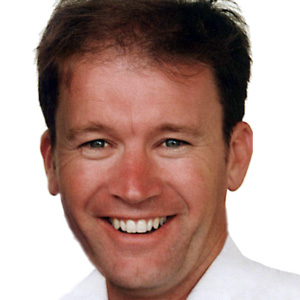| |
|
|
|

-
 PAUL MORAN 1963 - 2003 PAUL MORAN 1963 - 2003
|
- Paul William Moran was born
in Adelaide, Australia, on May 30, 1963, the youngest of the
four children, all boys, of Gerry and Kath Moran. Theirs was
a close family in which love, Christian values and discipline
prevailed. Paul had a typical Australian upbringing of plenty
of outdoor activity, especially sport, and also summers at the
nearby beach. It gave him a love of life.
-
- Most of his education was at
Sacred Heart College, a five-minute bicycle ride away from home.
His headmaster at the time recalls him as an incurable optimist.
He acted on the premise that whatever he undertook would be successful,
he said. Paul was an adventurous and spirited boy whose early
passion was photography and one that was to determine his working
life. His first job, at the age of 18, was as an office boy at
a local TV station and from there he soon graduated to cameraman.
-
- Like many young Australians
of his generation, Paul wanted to go overseas to see the world.
His first choice was the United States where he did a variety
of jobs ranging from delivering pizza to working for a small-town
TV station. He also did TV work in Washington, the hub of global
politics and power, which were to intrigue him.
|
|
- In 1990, Paul moved on to London
and it was here that he made his initial Middle East contacts
which were to inspire his interest in this region. Later that
year, after Iraq invaded Kuwait, he was recruited for his technical
expertise to work for an exiled TV service to beam news back
to occupied Kuwait. The Middle East was now very much his home
and he was entranced by its peoples, history and cultures. He
preferred the independent life of a freelancer, shooting and
editing news stories and producing features. He travelled widely,
gathering friends everywhere.
-
- He had a natural empathy with
the oppressed and the underdog. The historic plight of the Kurds
in Northern Iraq and Iran and their quest for a state of their
own moved him. So did the plight of refugees from Africa and
elsewhere who, seeking a better life in Europe, had found themselves
washed up and imprisoned in Cyprus. Paul was far more concerned
about humanity than money or material gain. He believed the best
in people. This, a boyish charm, his charisma and a cheerful
attitude in whatever the circumstances seemingly endeared him
to everyone he met.
-
- In Cyprus, he met what was to
become the love of his life - a beautiful pharmacist from Belgrade
in the former Yugoslavia, Ivana Rapajic. They moved to Bahrain
where Paul worked for international news organisations, including
the Australian Broadcasting Corporation as a reporter/cameraman.
His father had worked as a technical supervisor for the ABC in
Adelaide and Paul, by now married to Ivana and living in Paris,
decided he also wanted a career with the ABC.
-
- By coincidence, in late 2002
with a war in Iraq looming, the ABC approached Paul to work as
its cameraman/editor in Northern Iraq in view of his extensive
knowledge and experience there. He leapt at the opportunity provided
it did not conflict with another happy event in his life, the
arrival of his first child. On February 3, 2003, a baby girl
arrived. Paul and Ivana named her Tara Alexandra. The following
month, after much thought, Paul decided he was ready to move
to Northern Iraq for the ABC. There he linked up with an experienced
ABC foreign correspondent, Eric Campbell, himself a new father
for the first time. They filed several reports and by all accounts
thrived in what they were doing despite the hardships and omnipresent
dangers as the war finally began.
-
- On March 22, 2003, they travelled
from the nominal Kurdish capital of Sulaymaniyah to visit the
base of an extremist group, Ansar Al-Islam, which US missiles
had hit the previous night. Just as they completed their filming,
there was some sudden commotion outside the base. Paul instinctively
ran to get some shots. At that very moment, a car screeched up
alongside him and others and exploded. It was a suicide bomber.
Paul stood no chance. He was killed instantly, the first international
media casualty of the war. He was just 39. My total loss, said
a distraught Ivana. The news of his death was greeted with disbelief;
such was his larger-than-life character, his apparent indestructibility
and the widespread personal and professional regard, admiration
and love for him. Scores of messages from so many people in so
many countries all noted his great sense of humanity.
-
- A poignant letter from Daniel
Blair, an American friend working in Saudi Arabia, to Tara summed
up the feelings of many. He wrote: I feel very blessed to have
known a man as compassionate and loving as Paul and, if you grow
up to be half the person your father was in life, you will have
accomplished a great deal more than most people. Ivana flew immediately
to Iran to meet the body of her beloved husband after it was
repatriated from Northern Iraq. She then accompanied it back
to Adelaide, where Paul was laid to rest alongside his father,
Gerry, who had died two years earlier. Ivana takes comfort in
her fervent belief that Paul is watching over Tara s progress
like a guardian angel. Paul is with us all the time in spirit,
she says. I can feel his strength helping us. Paul William Moran 1963-2003.
-
|
| |
|
|